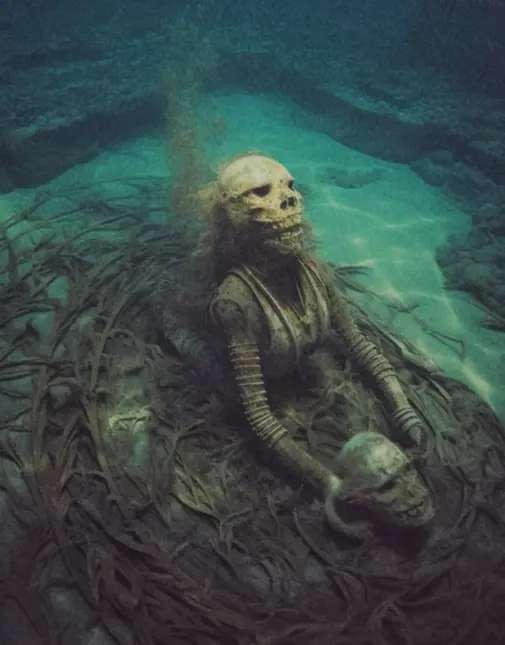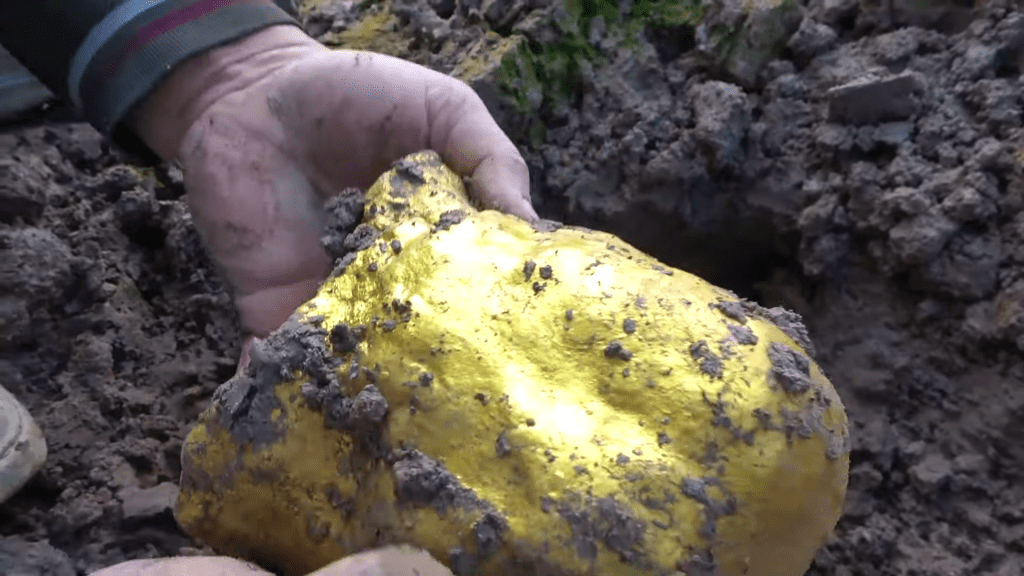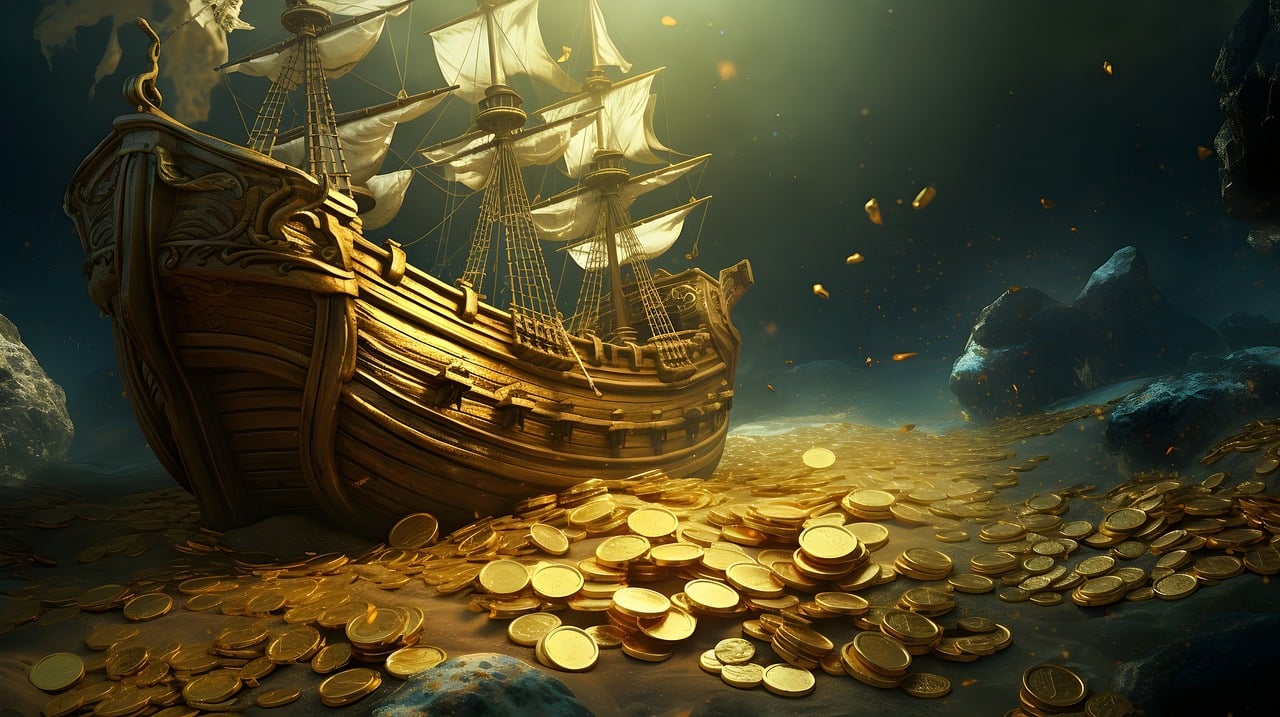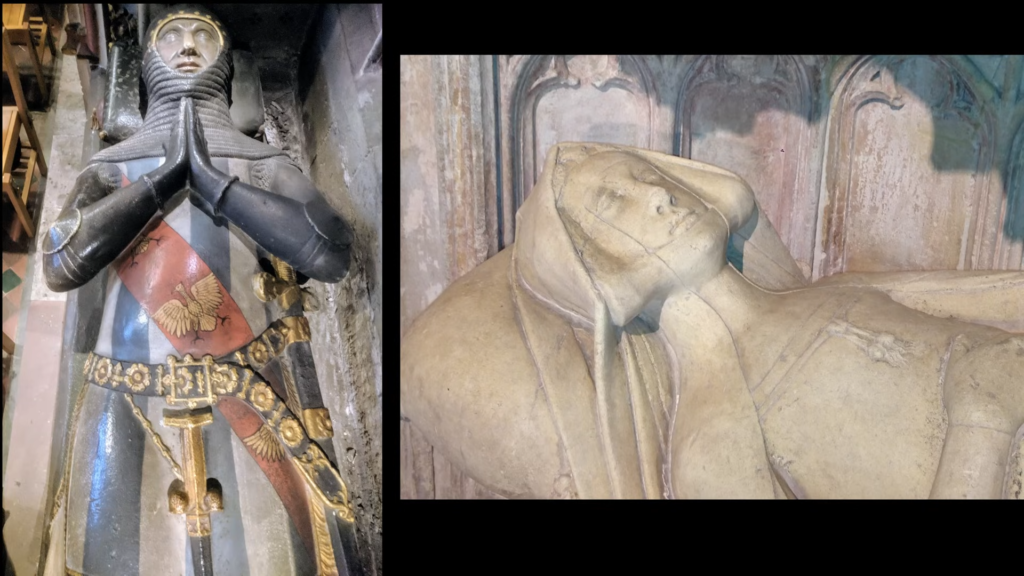It would be more than 100 years at least until Alexander the Great led the forces of Macedonia to conquer the Hellenistic world.
But, even in its early days, the Greek kingdom’s warriors were already an imposing sight on the battlefield.
A dig in an ancient burial ground in Alexander’s birthplace of Pella, northern Greece, has unearthed the graves of 20 warriors in battle dress, a find which archaeologists say sheds fresh light on the development of Macedonian culture.
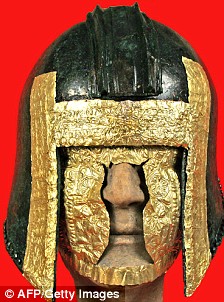
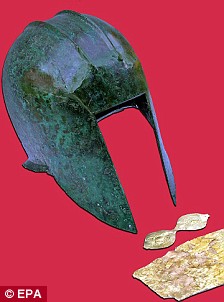
Imposing: A bronze helmet with golden facial plates (left) and a copper helmet and gold eye-cover of two ancient warriors were found in a cemetery in Pella
The warriors, whose remains have been dated to the late Archaic period, between 580BC and 460BC, were among 43 graves excavated in the latest dig, with the other bodies ranging from 650BC to 279BC.
Some of the warriors were buried in bronze helmets alongside iron swords and knives.
Their eyes, mouths and chests were covered in gold foil richly decorated with drawings of lions and other animals symbolising royal power.
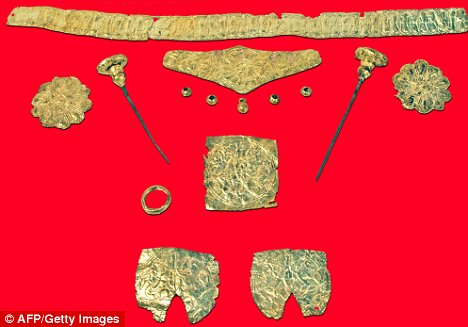
Gold jewellery was found in a woman’s grave at the ancient cemetery
Other finds included gold jewellery and pottery.
‘The discovery is rich in historical importance, shedding light on Macedonian culture during the Archaic period,’ said Pavlos Chrysostomou.
He said the graves confirmed evidence of an ancient Macedonian society organised along militaristic lines and with overseas trade as early as the second half of the 7th century BC.
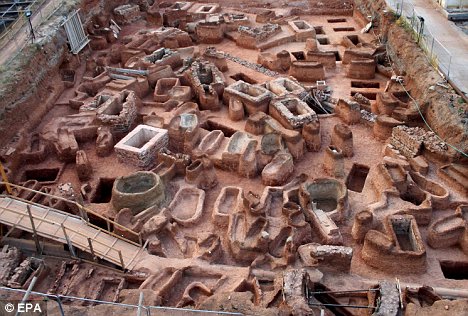
Above and below: Overviews of portions of the 1,414 ancient graves uncovered during work on a new metro line in the northern Greek port city of Thessaloniki
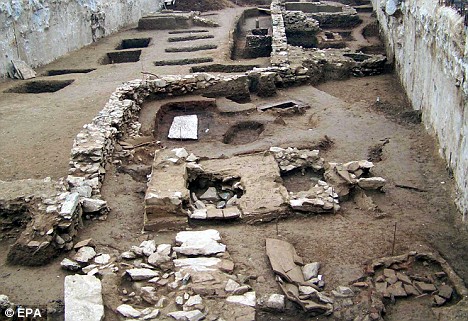
Among the excavated graves, the team also found 11 women from the Archaic period, with gold and bronze necklaces, earrings and brooches.
Nine of the graves dated to the late classical or early Hellenistic period, around the death of Alexander the Great in 323BC.
The dig was part of a wider eight-year project that investigated a total of 915 ancient graves.
Alexander, whose father Philip II unified the city states of mainland Greece before his assassination in 336BC, conquered most of the world known to the ancient Greeks.
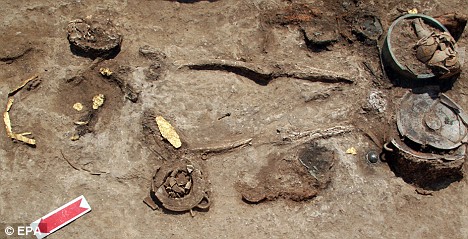
Gold jewellery is shown in one of the 11 women’s graves found
Educated by the ancient Greek philosopher Aristotle, by the age of 25 he had defeated the Persians.
His empire eventually included Egypt, Anatolia, Syria, Phoenicia, Judea, Gaza, Mesopotamia and Bactria, even stretching as far as India.
He is believed never to have been defeated in battle but in 323BC, aged just 32, he died in Babylon, possibly as a result of malaria, poisoning, typhoid fever, viral encephalitis or the consequences of alcoholism.
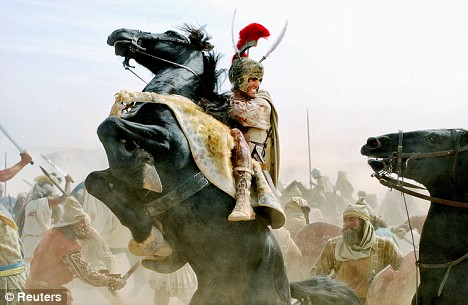
Legend: Alexander the Great as played by Colin Farrell in the 2004 film
